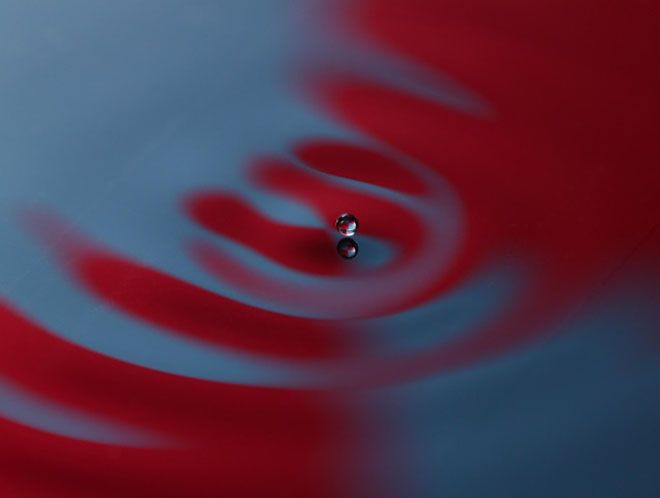By Natalie Wolchover, Quanta Magazine
For nearly a century, “reality” has been a murky concept. The laws of quantum physics seem to suggest that particles spend much of their time in a ghostly state, lacking even basic properties such as a definite location and instead existing everywhere and nowhere at once. Only when a particle is measured does it suddenly materialize, appearing to pick its position as if by a roll of the dice.
This idea that nature is inherently probabilistic — that particles have no hard properties, only likelihoods, until they are observed — is directly implied by the standard equations of quantum mechanics. But now a set of surprising experiments with fluids has revived old skepticism about that worldview. The bizarre results are fueling interest in an almost forgotten version of quantum mechanics, one that never gave up the idea of a single, concrete reality.
